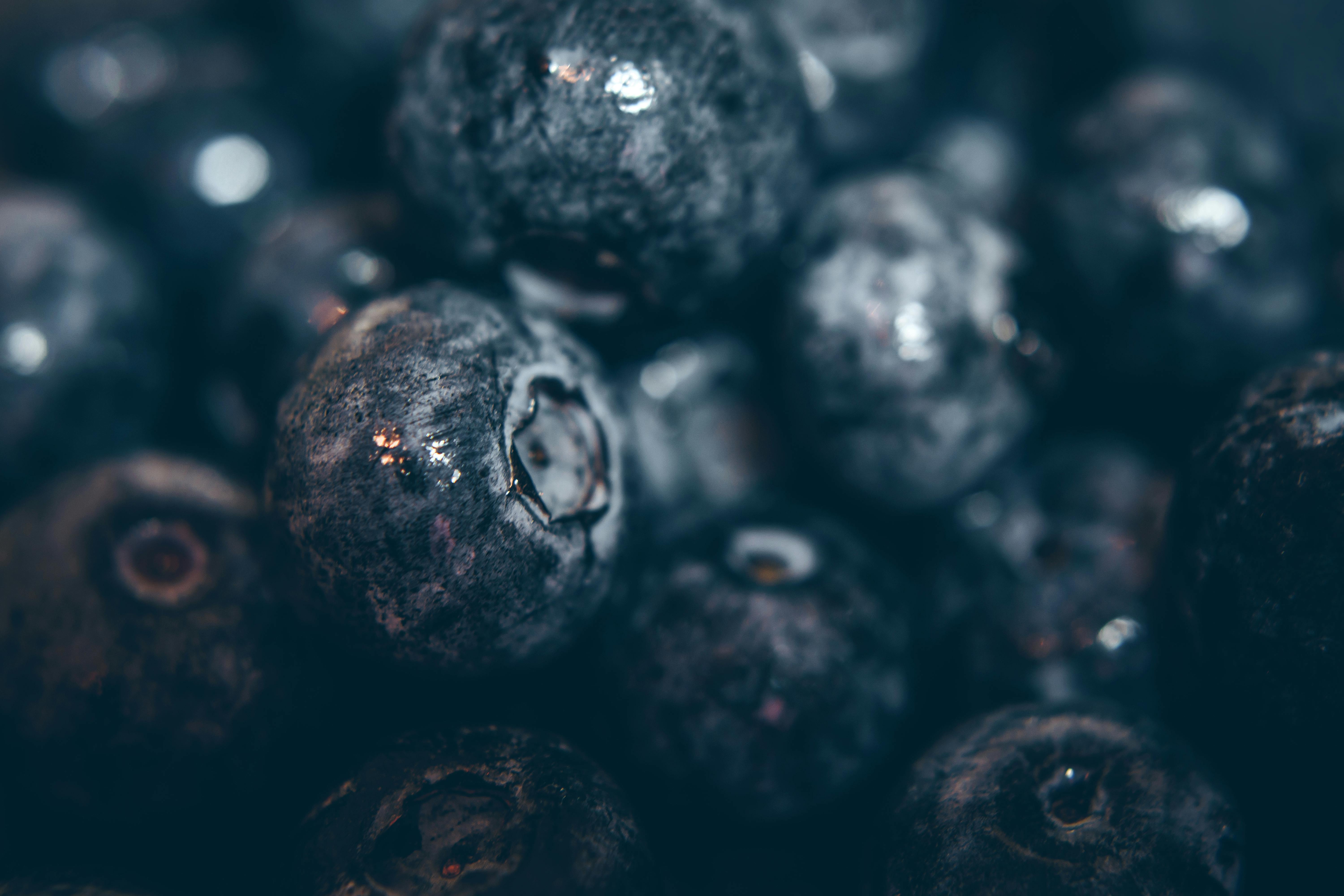Do blueberries cause dark poop? This is a common question that many people have. It is important to know the answer to this question in order to determine if dark poop is a sign of health problem, or if it is simply a result of something you ate. In this article, we will discuss the potential causes of dark poop and whether or not blueberries are one of them. We will also look at other potential causes and lifestyle factors that may contribute to darker stools.Yes, there is a link between eating blueberries and dark poop. The blueberry pigment called anthocyanin is responsible for giving blueberries their deep blue color, and it may also be the cause of darkening your poop. While the color of your stool depends on a variety of factors, if you notice that your poop has suddenly become darker after eating blueberries, it could be due to the anthocyanin in the fruit.
What Causes Dark Stool?
Dark stools can have several different causes, ranging from dietary factors to medical conditions. Dietary factors that can cause dark stools include eating certain foods that contain dark pigments, such as blackberries or beets. Taking certain medications, such as iron supplements or bismuth subsalicylate (Pepto-Bismol), can also cause dark stools. Medical conditions that may cause dark stools include bleeding in the digestive tract, ulcers, Crohn’s disease, colitis, and other gastrointestinal disorders. In some cases, dark stools may also be caused by eating too much food with a high fat content, since fat is not digested as completely as other components of food. If you are concerned about your stool color, it is important to talk to your doctor so they can determine the underlying cause.
It is important to note that having dark colored stool does not always indicate a serious medical condition. Often changes in diet and lifestyle habits are all that are needed to return stools to their more typical color. However, if your stool remains persistently black or tarry for more than a few days or if you experience any other symptoms such as abdominal pain or vomiting, it is important to seek medical advice right away.
Blueberries and Stool Color
Consuming blueberries can affect the color of stool. Blueberries contain anthocyanins, which are water-soluble pigments that can give stool a blue-ish hue. The intensity of the color change depends on the amount of blueberries consumed. In some cases, it can give stools a greenish hue due to the presence of other components in blueberries, such as tannins and polyphenols. In addition, if a person is consuming other foods or beverages that contain natural or artificial dyes, these dyes may mix with the anthocyanins from blueberries to produce a different colored stool.
Overall, when consuming blueberries, it is possible to observe a change in the color of one’s stool. However, it is important to note that this change in color is usually not an indicator of any serious health issue. As long as there is no other accompanying symptoms or discomfort while passing bowel movements, then there should be no cause for concern.
Other Foods that Can Cause Dark Stools
Dark stools can be caused by a variety of foods, not just iron-rich foods. For example, certain fruits and vegetables, such as blueberries and beets, can cause dark stools. Certain medications like antacids can also cause dark stools. Bismuth products like Pepto-Bismol may cause a black or a bluish-black discoloration of the stool. Eating large amounts of fatty or processed foods can also cause dark stools.
In some cases, food coloring or dyes may also cause dark stools. Drinks that contain artificial colors and other additives may leave residue in the stool that causes it to be darker in color. Some people are more sensitive than others to food coloring and dyes, so it is important to monitor your intake of these additives if you notice your stools changing color after eating or drinking something with artificial colors.
Dark stools can also be caused by eating large amounts of licorice, soy sauce, or red wine. Eating mushrooms can also result in darker colored stools due to their high iron content. Finally, certain vitamins such as iron supplements may lead to darker colored stools as well.
It is important to note that if you experience any sudden changes in the color or texture of your stool that are persistent and not related to any recent dietary changes, it is important to speak with your doctor as soon as possible as this could indicate an underlying medical condition requiring treatment.
Do Artificial Sweeteners Affect the Color of Stools?
It is a known fact that many artificial sweeteners can have an effect on the color of your stools. This is because some artificial sweeteners are made up of chemicals that can interact with your body’s digestive system, causing changes in your body’s normal metabolism. For example, when you consume artificial sweeteners, they are broken down by your digestive system to produce metabolites that are then excreted in your stools. Depending on the type of sweetener and how much you have consumed, these metabolites can change the color of your stools.
For instance, if you consume a lot of sugar-free products that contain sucralose, a common artificial sweetener, it is possible for your stools to become lighter in color. This is because sucralose can interact with certain enzymes in your digestive system and cause them to produce lighter-colored metabolites. Similarly, consuming a lot of saccharin-based products may cause your stools to become darker in color due to its interaction with different enzymes in your digestive system.
It is important to note that while it is possible for artificial sweeteners to affect the color of your stools, this should not cause any alarm as it does not necessarily indicate any health issues. However, if you notice any drastic changes in the color or consistency of your stools after consuming artificial sweeteners, it would be best to consult with a doctor so they can investigate further and provide proper medical advice.

What Are the Nutrients Found in Blueberries?
Blueberries are a nutrient-dense fruit packed with essential vitamins and minerals. They are a great source of dietary fiber, vitamins C and K, manganese, and copper. The antioxidants present in blueberries can help protect against oxidative stress, which can damage cells and lead to chronic diseases. They also contain a wide variety of phytonutrients, including anthocyanins, flavonols, and phenolic acids. These compounds are believed to have anti-inflammatory effects and may help reduce the risk of certain types of cancer. Blueberries also contain high levels of ellagic acid, which is thought to have anti-cancer properties as well. Additionally, they are a good source of essential fatty acids such as omega-3s that can help support heart health. All these nutrients make blueberries an incredibly nutritious choice for any diet!
Eating Blueberries Safely
Blueberries are an incredibly nutritious and delicious fruit that can be enjoyed in a variety of ways. They are packed with antioxidants, vitamins, and minerals that are essential for good health. Unfortunately, blueberries also carry a risk of food-borne illness if they are not handled or stored properly. To ensure that you get the most out of this superfood while staying safe, here are some tips for eating blueberries safely:
1. Purchase blueberries from a reputable source. Make sure the berries look fresh and vibrant and avoid any that look moldy or have signs of spoilage.
2. Wash blueberries before consuming them to reduce the risk of ingesting harmful bacteria or contaminants. Gently rinse them in cool water and then pat dry with a paper towel.
3. Store fresh blueberries in an airtight container in the refrigerator for up to two weeks. If you need to store them longer, freeze them in an airtight container or bag for up to six months.
4. Discard any blueberries that have been left at room temperature for more than two hours as they may contain harmful bacteria or contaminants from handling and environment conditions.
5. When preparing recipes with blueberries, make sure to cook them thoroughly to reduce the risk of food-borne illness caused by harmful bacteria such as E coli or Salmonella.
By following these tips for eating blueberries safely, you can enjoy all the nutritional benefits this superfood has to offer without worrying about getting sick from mishandling or improper storage.
Could Eating Too Many Blueberries Cause Dark Stool?
It is possible that eating too many blueberries could cause dark stool. Blueberries are rich in antioxidants and have many health benefits, but they may also be responsible for darkening the color of your stools. This can happen when the pigment in the blueberries is not fully absorbed by the digestive system and passes through undigested, resulting in dark-colored stools. Additionally, blueberry juice or other blueberry-based products can cause dark stools as well.
If you’re noticing that your stools are darker than usual after consuming a large amount of blueberries, it’s best to talk to your doctor. They can help determine if this is due to eating too many blueberries or something else. In some cases, darker stools may be a sign of a more serious underlying condition such as an infection or disease, so it’s important to get medical advice if you are concerned about your bowel movements.
It is possible to enjoy the health benefits of blueberries without overdoing it. Eating a moderate amount of fresh or frozen blueberries as part of a balanced diet should not be a problem for most people. If you do experience darker-than-normal stools after consuming a large quantity of these berries, then reducing your intake may help prevent this from happening again in the future.

Conclusion
In conclusion, it is possible for blueberries to cause dark poop in some people. This is due to the high levels of anthocyanins in the fruit which act as a natural dye. Although dark colored stools are not normally a cause for concern, if you experience any other symptoms along with the discoloration, it is important to consult your doctor. While blueberries can be beneficial for your overall health and well-being, it is best to monitor your intake of this fruit if you notice any changes in your stool color.
It is also important to remember that other foods such as beets and black licorice can also cause dark stools. Therefore, it is essential to monitor your diet closely and adjust it accordingly. Blueberries are a delicious and nutritious snack which can offer many benefits when eaten in moderation. Therefore, you can continue to enjoy these juicy berries without worrying about an impact on your stool color.
Overall, if you experience any changes in your stool color after eating blueberries or any other foods, it may be best to consult with a healthcare professional for further evaluation. Enjoy eating these delicious berries in moderation and keep an eye out for any changes in your stool color that may warrant further attention from a doctor.



